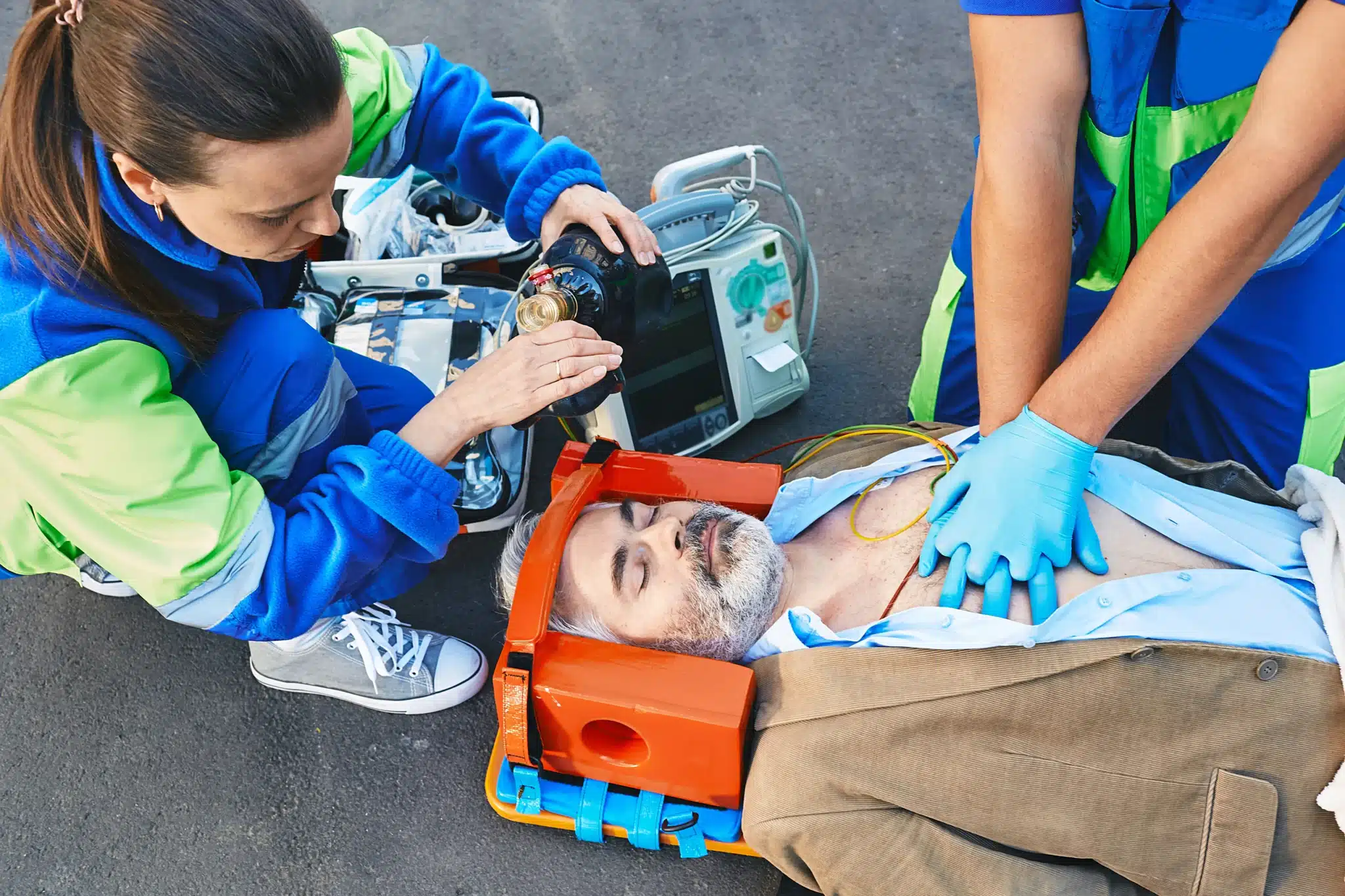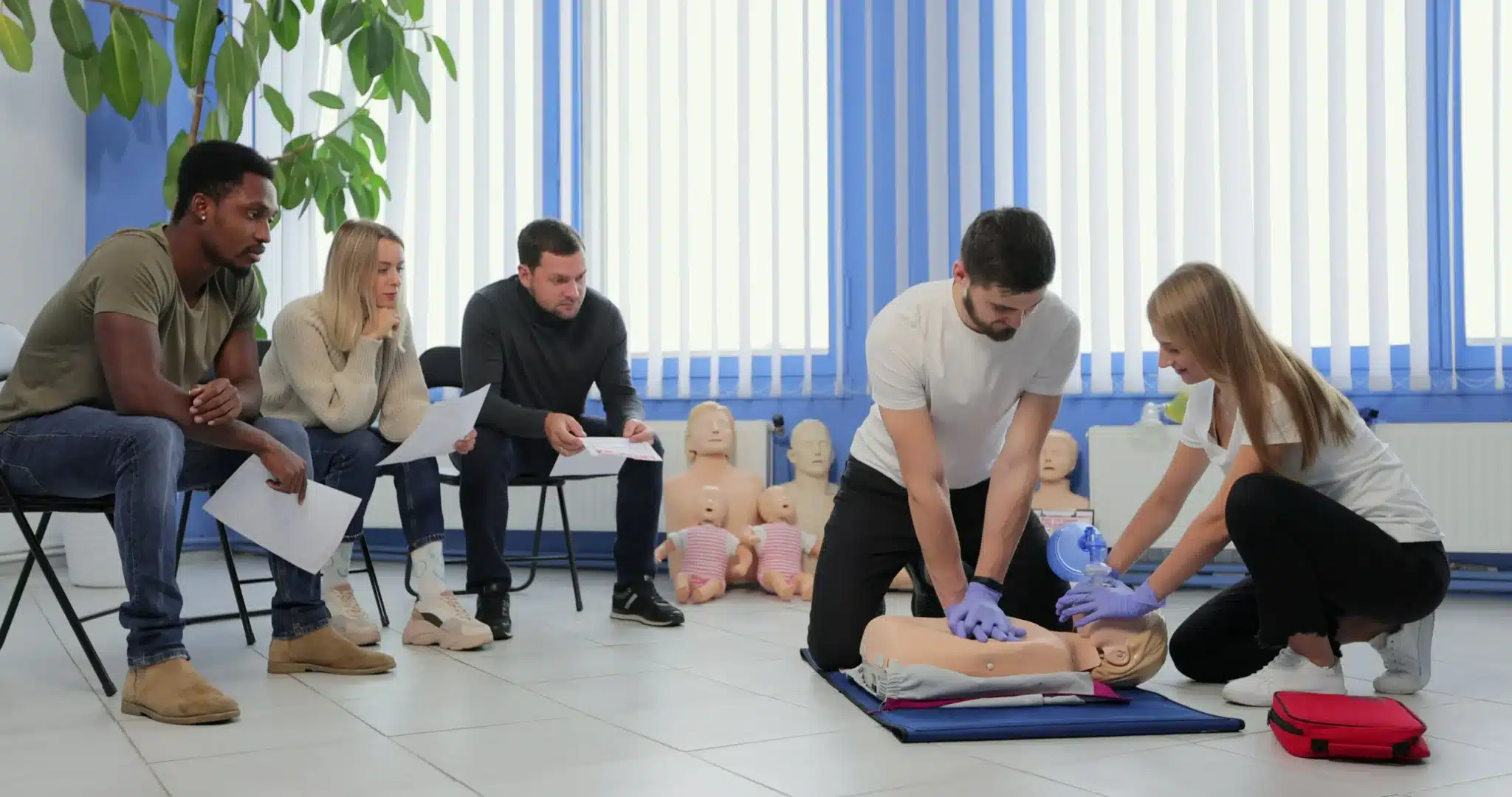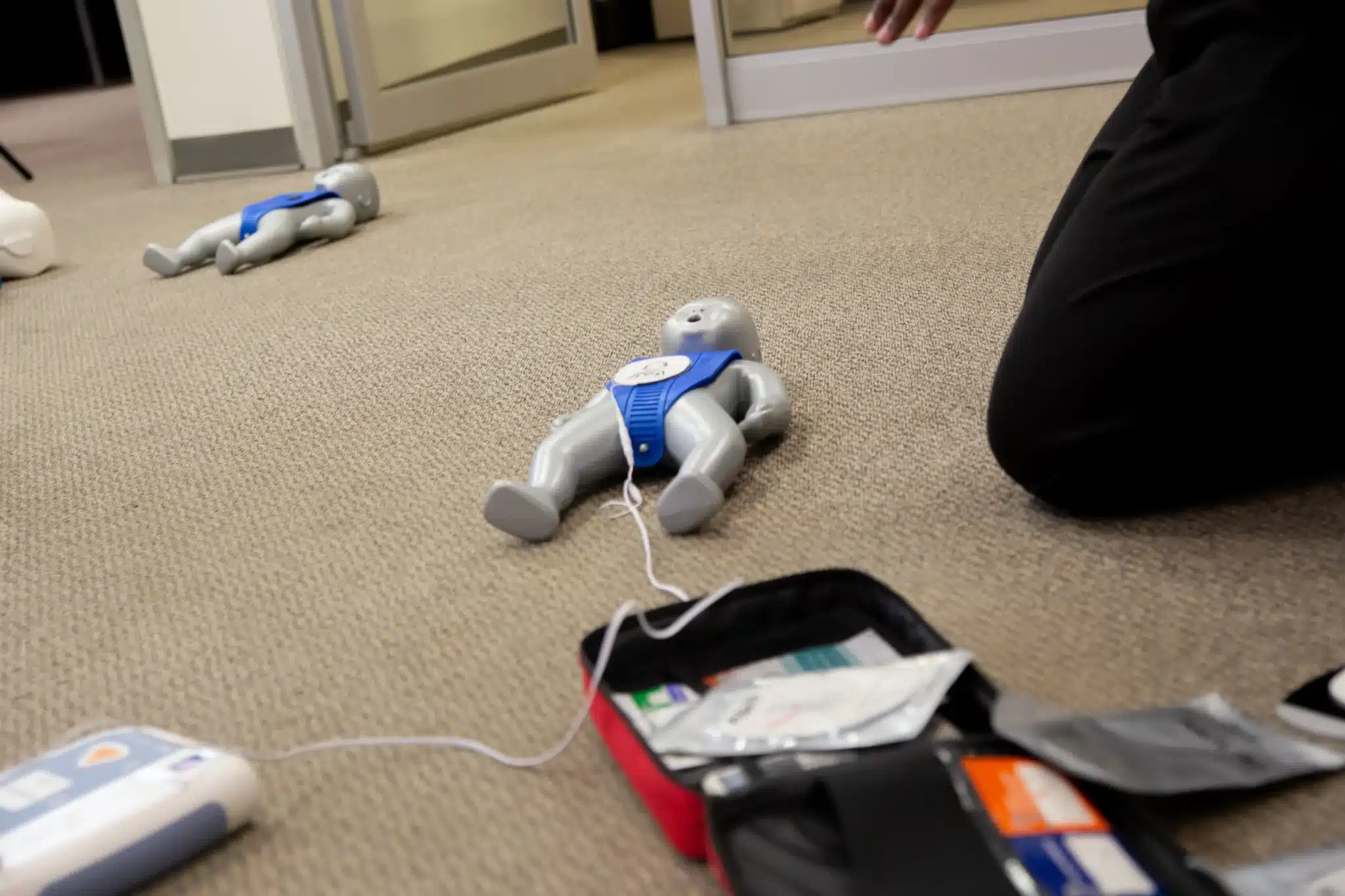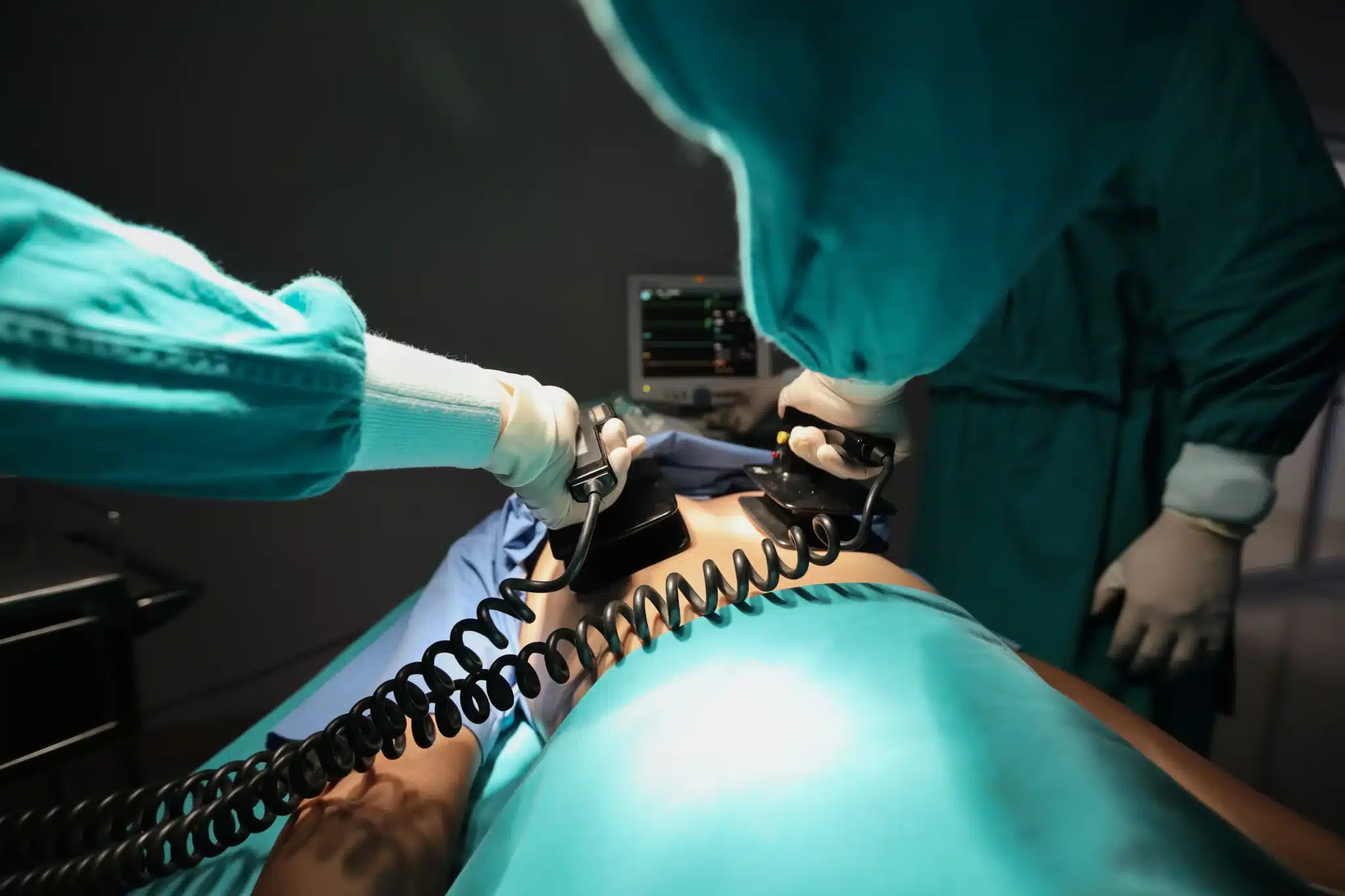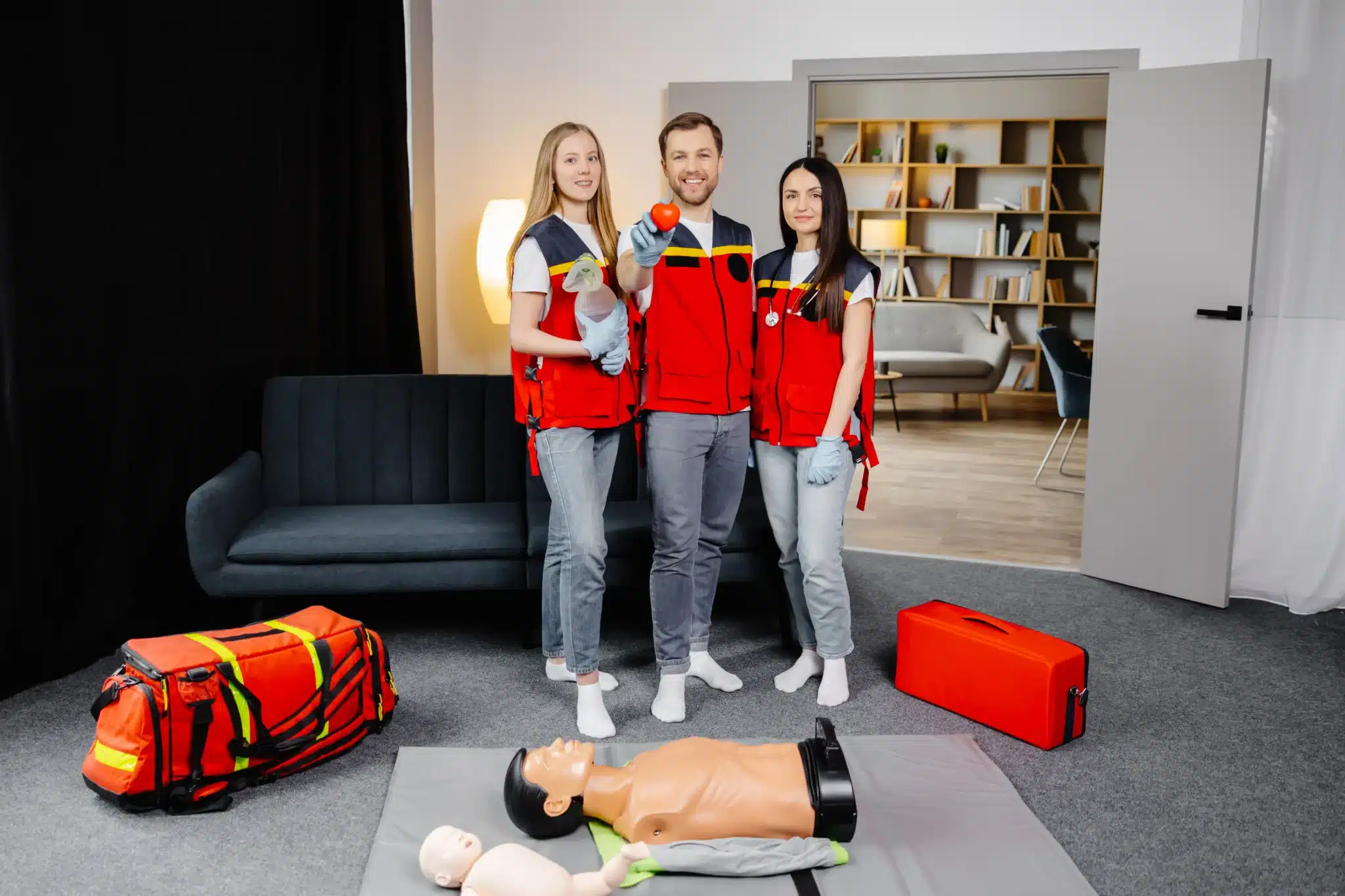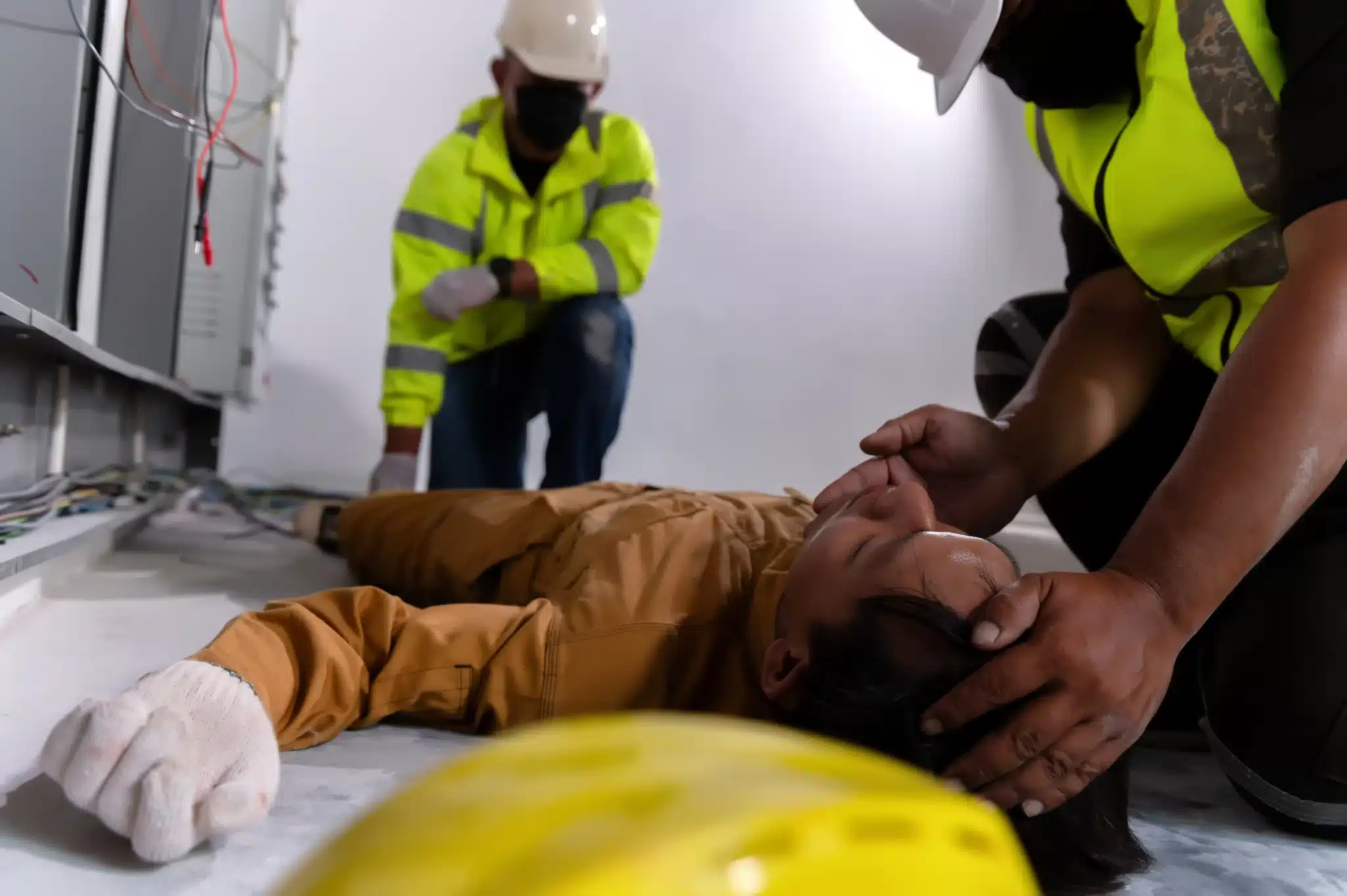Cardiac emergencies demand a swift, coordinated response from skilled healthcare professionals. If you’re in San Jose and looking to enhance your expertise in advanced cardiac life support, this post is your go-to resource. We’ll cover the essentials of ACLS certification, including course structure, key topics covered, and reputable training providers in San Jose. We’ll also address common misconceptions about ACLS and explore how this vital certification can positively impact your healthcare career. Whether you’re seeking initial certification or recertification, this guide will help you confidently navigate the process of obtaining advanced cardiac life support training in San Jose.
Key Takeaways
- ACLS is a vital skill for healthcare professionals: It provides advanced training for managing cardiac emergencies, improves patient outcomes, and can open doors to career advancement.
- Choose your ACLS course wisely: Select an AHA-accredited provider with experienced instructors, a hands-on learning environment, and a schedule that works for you. Consider bundling with other certifications like BLS or PALS.
- Stay current with your ACLS skills: Renew your certification every two years and pursue continuing education opportunities to maintain your expertise and provide the best patient care.
What is Advanced Cardiac Life Support (ACLS)?
What is ACLS?
ACLS (Advanced Cardiac Life Support) equips healthcare professionals with the skills to manage cardiopulmonary arrest and other cardiovascular emergencies. It builds upon the foundational skills learned in Basic Life Support (BLS) training, covering more advanced techniques and algorithms. ACLS emphasizes teamwork, effective communication, and high-performance resuscitation during critical situations. Think of it as the next level of expertise for healthcare providers responding to serious heart issues. ACLS training often uses realistic scenarios to prepare professionals for the fast-paced, high-pressure environment of a cardiac emergency, as highlighted in these ACLS training scenarios.
Why is ACLS certification important for healthcare professionals?
ACLS certification is crucial for any healthcare professional regularly involved in managing cardiovascular emergencies. This includes physicians, nurses, paramedics, respiratory therapists, and other specialized healthcare providers. Holding an ACLS certification demonstrates a commitment to high-quality patient care and shows you’re current with the latest guidelines for managing life-threatening conditions. It helps healthcare providers make quick, informed decisions, potentially improving patient outcomes. Many healthcare facilities require ACLS certification as a condition of employment for this reason. For those in the San Jose area, finding a quality ACLS course is a vital step in career development and ensuring patient safety. It’s a testament to a healthcare provider’s dedication to excellence in patient care.
Top ACLS Certification Providers in San Jose
Finding the right ACLS certification course can feel overwhelming. To simplify your search, we’ve compiled a list of reputable providers in San Jose. Each offers a slightly different learning experience, so explore the options and see which best suits your needs.
Fremont CPR Classes
Fremont CPR Classes offers comprehensive ACLS certification courses that align with the latest American Heart Association (AHA) guidelines. Their in-person training lets students practice essential skills like CPR, defibrillation, and advanced airway management using simulation equipment. This hands-on approach creates a realistic and engaging learning environment. They also offer discounts for group classes. Fremont CPR Classes serves Fremont, Newark, and San Jose. Learn more on their website or contact them directly.
CPR Training Center
The CPR Training Center is known for its engaging, hands-on approach to ACLS training. Participants consistently praise the quality of instruction and the supportive learning environment. The center focuses on practical skills and real-life scenarios to prepare healthcare providers for emergency situations.
Safety Training Seminars
Safety Training Seminars provides AHA-certified CPR, ACLS, PALS, and First Aid classes in San Jose. They offer various courses designed for different skill levels, ensuring everyone receives the training they need to confidently respond in emergencies.
American Heart Association
The American Heart Association offers ACLS classes in San Jose for healthcare providers at all career stages, from novice clinicians to experienced practitioners seeking recertification. This comprehensive approach ensures everyone is well-prepared for advanced cardiac life support situations.
Red Cross
The American Red Cross offers ALS certification classes (often referred to as ACLS) specifically for healthcare providers and first responders. These courses build upon existing Basic Life Support (BLS) knowledge, making them ideal for those wanting to enhance their emergency response skills.
ACLS Course Structure and Content
Understanding the structure and content of an ACLS course can help you choose the best learning environment for your needs. Let’s break down the typical format and key topics covered.
In-Person vs. Online Options
In-person ACLS classes offer hands-on training with simulation equipment, allowing you to practice skills like CPR, defibrillation, and advanced airway management in a controlled setting. This face-to-face interaction with instructors provides real-time feedback and personalized guidance. While online options exist, in-person training tends to be more effective for skills-based courses like ACLS.
Duration and Format
ACLS courses typically involve a combination of online learning and in-person skills sessions. The American Heart Association RQI program is a popular choice, offering a blended learning approach that allows you to complete some coursework online at your own pace. This flexible format makes it easier to fit the training into your busy schedule. You’ll then attend an in-person skills session to practice and demonstrate your proficiency.
Key Topics Covered
ACLS courses cover a range of essential topics to prepare healthcare providers for cardiac emergencies. Here’s a glimpse at what you can expect to learn:
Review of Basic Life Support (BLS) Skills
A solid foundation in BLS is crucial for ACLS. The course will review essential BLS skills, including high-quality CPR and effective ventilation techniques.
Recognize Cardiac Arrest and Arrhythmias
You’ll learn to quickly identify different types of cardiac arrest and arrhythmias. This includes understanding electrocardiograms (ECGs) and how to interpret them accurately. This knowledge is crucial for rapid diagnosis and effective treatment.
Manage Advanced Airways
Effective airway management is critical in cardiac emergencies. You’ll gain experience with advanced airway techniques, such as endotracheal intubation and supraglottic airway devices, ensuring you can maintain a patient’s airway effectively.
Pharmacology in ACLS
The course covers the appropriate use of medications in ACLS, including their indications, dosages, and potential side effects. You’ll learn which medications are used in various cardiac emergencies and how to administer them safely.
Team Dynamics and Communication
Clear communication and effective teamwork are essential during cardiac arrest situations. You’ll learn how to work as part of a coordinated team to provide optimal patient care, practicing communication strategies and team leadership skills.
Post-Cardiac Arrest Care
The course also addresses post-cardiac arrest care, including therapeutic hypothermia and other interventions to improve patient outcomes. This ensures you’re prepared to provide comprehensive care even after the initial emergency is resolved.
Cost of ACLS Certification in San Jose
Getting ACLS certified is an investment in your career and patient care. Understanding associated costs will help you plan. Let’s break down the typical price range and factors that influence ACLS certification costs in San Jose.
Average Price Range
ACLS certification in San Jose typically costs between $150 and $200. For example, some training centers, like the CPR Training Center, offer ACLS renewal courses within this range, making it easy to stay current with your certification. The American Heart Association’s blended learning program, which combines online coursework with in-person skills sessions, is often priced around $250. This format offers flexibility for those who prefer a mix of self-paced learning and hands-on practice.
Factors Affecting Cost
Several factors contribute to the final cost of ACLS certification. The format—in-person or online—plays a role. In-person ACLS classes provide a dynamic learning environment, allowing you to practice essential skills like CPR and defibrillation with simulation equipment. This hands-on training sometimes comes with a slightly higher price tag than online courses. Whether you’re pursuing other certifications alongside ACLS training is another factor. Bundling certifications like PALS or BLS with your ACLS course often leads to package deals, saving you money overall.
Discounts and Package Deals
Many training centers offer discounts, especially for groups. If you’re training with colleagues, ask about group rates. Some providers, like the CPR Training Center, offer a 20% discount for groups of 2–5 people. Look for other promotions, too. You might find seasonal discounts or special offers that lower the cost. Contact us at Fremont CPR Classes to learn about our current group discounts and package deals. We’re here to help you find the most cost-effective way to get your ACLS certification.
Prepare for ACLS Certification
Getting ready for your ACLS certification involves a few key steps. Understanding these prerequisites will help you feel confident and prepared for your course. This preparation is essential for success in the fast-paced world of advanced cardiac life support.
Required Prior Certifications
ACLS certification builds upon foundational knowledge and skills. You’ll need a current Basic Life Support (BLS) certification before enrolling in an ACLS course. This ensures you have the fundamental life-saving skills necessary to proceed to more advanced techniques. You can find BLS certification courses offered by Fremont CPR Classes.
Recommended Knowledge and Skills
While the ACLS course covers a comprehensive curriculum, having a solid understanding of certain concepts beforehand can significantly enhance your learning experience. Familiarity with cardiac rhythms, basic pharmacology, and airway management techniques will allow you to focus on mastering the advanced skills taught in the course. The AHA ACLS course offered in Fremont provides training in these advanced techniques, including rhythm recognition and medication administration.
Pre-Course Materials and Study Resources
Take advantage of any pre-course materials or study resources provided by your chosen training center. Reviewing the ACLS provider manual, practicing with online simulations, and watching video tutorials can give you a head start and help solidify key concepts before class. Many programs offer practice tests and online modules to help you assess your understanding and identify areas where you may need additional focus. Thorough preparation will make the in-person training more effective, allowing you to maximize your hands-on learning with simulation equipment for skills like CPR, defibrillation, and advanced airway management. This practical experience is invaluable for building confidence and competence in real-world emergency situations. Fremont CPR classes offer in-person training ideal for practicing these essential skills.
What to Expect During an ACLS Class
Attending an ACLS class is a dynamic experience, blending theoretical learning with hands-on practice. Here’s a glimpse of what you can expect:
Theoretical Components
ACLS courses begin by building a strong theoretical foundation. You’ll cover core concepts of advanced cardiovascular life support, like identifying and managing cardiac arrest rhythms, understanding ACLS medications, and navigating team dynamics during resuscitation. Fremont CPR Classes offers comprehensive ACLS certification courses aligned with current AHA guidelines. These classes cater to healthcare providers at all career stages, from new clinicians to seasoned professionals seeking recertification.
Hands-On Training
Theory is only half the battle. ACLS classes emphasize practical application through hands-on training. Simulations allow you to practice essential skills, including CPR, using a defibrillator, and managing advanced airways. In-person ACLS classes provide the ideal environment for interactive learning, using simulation equipment to mimic real-life emergencies. This focus on simulation technology equips healthcare providers with the skills to respond swiftly and effectively in critical moments.
Assessment and Certification Process
To earn your ACLS certification, you’ll participate in assessments designed to evaluate your understanding and proficiency. These typically involve written exams and practical demonstrations. Upon successful completion, you’ll receive your ACLS certification. While some certifications require periodic renewal, ACLS certification is permanent, though recertification is a good idea to stay current with advancements in ACLS. The training you receive in an ACLS class plays a crucial role in improving patient outcomes.
Choose the Right ACLS Provider in San Jose
Finding the right ACLS course can significantly impact your learning experience. Here’s what to consider when choosing an ACLS provider in San Jose:
Accreditation and Credentials
First, confirm the provider’s accreditation. Look for American Heart Association (AHA) accredited ACLS classes, which means the training adheres to the latest emergency cardiovascular care guidelines. This is essential to ensure you receive high-quality, recognized training. AHA offers courses for various career stages, whether you’re just starting out or are due for recertification.
Instructor Qualifications
Experienced, knowledgeable instructors are key to a positive learning experience. Seek out providers with instructors who have a strong background in ACLS and positive student feedback. Excellent instructors can clearly explain complex concepts and create a supportive learning environment. Student reviews can offer valuable insights into the quality of instruction.
Class Size and Learning Environment
Consider the class size and learning environment. Smaller classes often provide more personalized attention from the instructor and more opportunities to ask questions. Hands-on practice is crucial for ACLS, so look for courses that offer ample opportunities to practice skills like CPR, defibrillation, and airway management with simulation equipment. In-person ACLS classes are ideal for this interactive learning.
Scheduling Flexibility
Finally, think about scheduling. A provider with various class times and dates makes it easier to fit the training into your busy schedule. Look for providers offering frequent courses in San Jose and nearby areas like Fremont and Newark. This flexibility can help you avoid scheduling conflicts and complete your certification efficiently.
Common Misconceptions about ACLS Training
It’s easy to get confused about the specifics of ACLS training, especially if you’re new to advanced cardiac care. Let’s clear up a few common misconceptions so you can approach your training with confidence.
Who Should Take ACLS Courses?
One frequent misconception is that ACLS certification is only for doctors and paramedics. While it’s certainly crucial for them, ACLS training is valuable for any healthcare provider who might face a cardiac emergency. Nurses, respiratory therapists, pharmacists, and other healthcare professionals can all benefit from the knowledge and skills taught in an ACLS course. Think of it this way: the more team members prepared to handle these situations, the better the outcome for the patient.
The Importance of Online Pre-Course Work
Many students are surprised to learn there’s pre-course work involved with ACLS certification. The American Heart Association (AHA) requires students to complete online modules before attending the in-person skills session. This online component covers essential information and allows instructors to focus on hands-on training during the in-person class. Make sure you allocate enough time to complete these online materials before your scheduled class date. You should also obtain an ACLS Provider Manual, often available for purchase through your chosen training center.
Course Difficulty and Preparation
Some people worry that ACLS training will be too difficult. While the course is comprehensive and challenging, it’s designed to be manageable for healthcare professionals with a basic understanding of life support principles. Choosing the right course format can also make a big difference. In-person ACLS training offers personalized guidance and real-time feedback from instructors, which can be incredibly helpful for mastering the practical skills. Don’t hesitate to contact your training center with any questions or concerns you have before the course begins. They can offer advice on how to best prepare and set you up for success.
Maintain Your ACLS Certification
Earning your ACLS certification is a significant achievement, but staying current is essential for effective patient care. This section covers how to maintain your credentials and keep your skills sharp.
Renewal Requirements and Frequency
ACLS certification is valid for two years. To maintain your certification, complete a renewal course before it expires. Staying on top of your renewal date ensures you’re always prepared for advanced cardiac life support situations.
Continuing Education Opportunities
Beyond renewing your ACLS certification, consider expanding your skillset with other relevant certifications. PALS (Pediatric Advanced Life Support) and BLS (Basic Life Support) certifications complement your ACLS training, broadening your capabilities as a healthcare provider and enhancing your overall emergency response skills. Check with your employer or licensing board to see if continuing education credits are available.
Stay Updated with ACLS Guidelines
Medical best practices are constantly evolving. Staying current with the latest ACLS guidelines is crucial for providing effective patient care. Regularly review updated materials and consider refresher courses or workshops to stay informed about changes in protocols or procedures. This proactive approach will ensure you’re always prepared to deliver the highest standard of care in advanced cardiac life support scenarios.
The Impact of ACLS Certification on Healthcare Careers
Role in Emergency Response
ACLS certification equips healthcare providers with the skills to manage cardiac arrest and other cardiovascular emergencies. These skills are crucial for responding to crises, stabilizing patients, and coordinating care within a team. Whether you’re a nurse, physician, or paramedic, ACLS training empowers you to make quick, informed decisions during high-pressure situations, ultimately improving patient outcomes. This specialized training from providers like Fremont CPR Classes covers a range of life-saving interventions, from airway management and rhythm recognition to effective medication administration. Having a team of ACLS-certified professionals ensures a coordinated and efficient response to emergencies, minimizing delays and maximizing the effectiveness of treatment.
Improve Patient Outcomes
Studies consistently show a correlation between ACLS-trained healthcare teams and improved patient survival rates in cases of cardiac arrest. The advanced skills and knowledge gained through ACLS certification enable providers to deliver timely and appropriate interventions, increasing the likelihood of successful resuscitation and minimizing long-term complications. By adhering to evidence-based protocols and practicing advanced techniques, ACLS-certified professionals contribute significantly to enhanced patient care and better overall outcomes. This commitment to excellence in cardiovascular care benefits individual patients and strengthens the quality of healthcare delivery within the community.
Career Advancement Opportunities
In a competitive healthcare landscape, ACLS certification is often a prerequisite for many advanced positions. It demonstrates a commitment to professional development and a higher level of expertise in managing complex medical emergencies. Holding an ACLS certification can open doors to new opportunities, such as specialized roles in critical care units, emergency departments, and rapid response teams. For those in Northern California, exploring a CPR training directory can be beneficial. ACLS certification can also enhance your earning potential and make you a more desirable candidate for promotions. Furthermore, pursuing additional certifications alongside your ACLS training, such as PALS or BLS, can further broaden your skillset and demonstrate your dedication to providing comprehensive patient care. For those seeking career growth, investing in ACLS certification is a strategic move that can significantly impact your professional trajectory.
Related Articles
- ACLS HeartCode in Newark: Everything You Need to Know – Fremont CPR Classes
- ACLS Certification in Fremont: A Comprehensive Guide
- Online ACLS Classes in San Jose: Your Guide – Fremont CPR Classes
- CPR Certification in San Jose: A Complete Guide
- ACLS Courses in Newark: Your Complete Guide – Fremont CPR Classes
Frequently Asked Questions
Is ACLS certification difficult to obtain?
ACLS certification does require dedication and effort, but it’s definitely achievable for healthcare professionals committed to learning. The course builds upon basic life support skills, so having a solid BLS foundation is helpful. Choosing a training center with experienced instructors and hands-on training can make a big difference in your learning experience and success.
What’s the difference between BLS and ACLS?
BLS (Basic Life Support) focuses on foundational life-saving techniques like CPR, recognizing and responding to life-threatening emergencies, and using an AED. ACLS (Advanced Cardiac Life Support) builds upon those skills, delving into more advanced techniques for managing cardiac arrest and other serious cardiovascular emergencies. Think of BLS as the essential first step, while ACLS provides the next level of expertise for healthcare professionals.
How long does ACLS certification last, and how do I renew it?
ACLS certification is typically valid for two years. To renew, you’ll need to complete a recertification course before your current certification expires. This ensures your skills and knowledge are up-to-date with the latest guidelines.
Why should I choose in-person ACLS training over online options?
While online ACLS courses offer convenience, in-person training provides a more immersive and effective learning experience. You’ll have the opportunity to practice essential skills like CPR, intubation, and defibrillation using simulation equipment, receive real-time feedback from instructors, and learn from the experiences of your classmates. This hands-on practice is invaluable for building confidence and competence in real-world emergency situations.
What if I have more questions about ACLS certification?
If you have additional questions or need clarification on anything related to ACLS certification, don’t hesitate to reach out to your chosen training center directly. They can provide personalized guidance and address any specific concerns you may have. They’re there to support you throughout the process, from choosing the right course to preparing for your exam.
